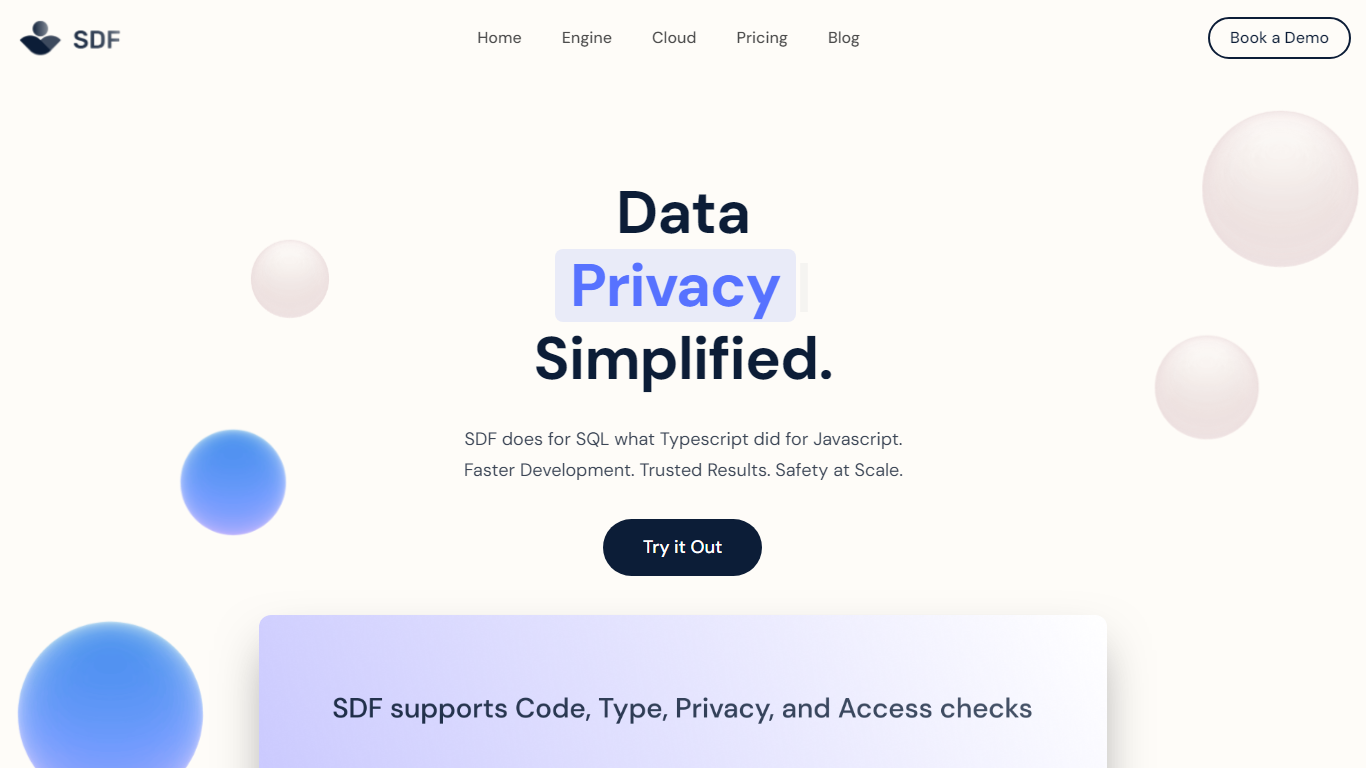In an era where data is king, ensuring the integrity and security of SQL code is of paramount importance. SDF emerges as a modern tool designed to usher in a new age of SQL development. Much like how TypeScript enhanced JavaScript, SDF aims to revolutionize SQL by providing a robust compiler and build system. It focuses on leveraging static analysis to scrutinize SQL code at an unprecedented warehouse scale, ensuring faster development, trusted results, and safety at scale for data developers.
Features of SDF
- Compiler and Build System: Utilizes static analysis to examine SQL code thoroughly.
- Identification of Problematic Code: Detects security vulnerabilities and privacy leaks within SQL.
- Program Safety and Privacy at Scale: Custom compile-time code checks ensure data protection.
- Rich Classifiers and Policies: Classifiers are easily defined for enhanced data governance.
- Automated Label Propagation: Minimal manual annotations required as the system automates the rest.
- Ease of Integration: Analyzes SQL in its current form and integrates results seamlessly into the development process.
- Unprecedented Visibility: Offers a global view of the SQL ecosystem.
- Proactive Error Prevention: Compile-time analysis and CI/CD integration to avoid mistakes.
- Data Management Out-of-the-Box: Features like a data catalog and semantic search are automatically provided.
- Cloud Native: Secure and containerized environment for all deployments.
- Comprehensive Data Lineage Analysis: Facilitates understanding of data flow and transformations.
- Built from the Ground Up in Rust: Ensures consistent output whether run locally or in the cloud.
- Proven Scalability: Capable of analyzing millions of queries daily.
How SDF Works
- Static Analysis: SDF performs a comprehensive examination of SQL code.
- Code Checks: Users can write custom checks to apply to various SQL elements.
- Rich Classifiers and Policies: The system allows users to define classifiers and policies with ease.
- Automated Label Propagation: Reduces manual work by propagating classifications automatically.
- Integration: SDF analyzes SQL code in its current state and integrates findings into the development workflow.
- Data Lineage Analysis: Helps in tracking data flow for troubleshooting and compliance.
Benefits of SDF
- Enhanced Security and Privacy: Customizable checks prevent unauthorized data access.
- Streamlined Governance: Policies and classifiers improve data governance.
- Proactive Error Detection: Catches potential errors early in the development process.
- Improved Data Integrity: Static analysis ensures data accuracy and reliability.
- Efficient Development: SDF’s capabilities lead to a reduction in development time and effort.
- Scalability: Designed to handle large-scale data assets efficiently.
Pricing of SDF
The pricing details for SDF are not explicitly mentioned on the provided URL. For accurate pricing information, interested parties are encouraged to contact the SDF team directly or book a demo to discuss their specific needs and obtain a tailored quote.
SDF Review
SDF stands out as a tool that addresses the complexities of modern SQL development. It offers a comprehensive suite of features that cater to organizations looking for reliable and secure data management. The emphasis on static analysis, proactive error prevention, and ease of integration with existing codebases underscores SDF’s commitment to improving data development practices.
Conclusion
SDF is a transformative tool poised to redefine the SQL development landscape. By offering a suite of features that prioritize security, governance, and efficiency, SDF positions itself as an essential asset for organizations seeking to enhance their data management capabilities. Its cloud-native approach, coupled with support for multiple SQL dialects, ensures that SDF is an adaptable and scalable solution suitable for enterprises of all sizes.
